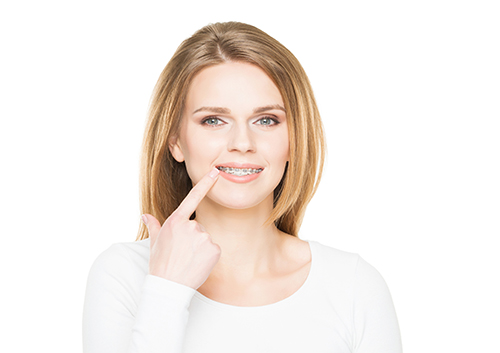Braces: Not just for kids anymore
December 24th, 2025

Despite the common assumption that braces are for kids, more and more adults are choosing to pursue orthodontics to correct their smiles. Just hearing the word “braces” and picturing a mouth full of metal can cause many grownups to hesitate about getting treatment for a straighter smile.
We’re here to give you the information you need to evaluate your treatment options and make the right choice for yourself. Whatever your personal history, wearing braces as an adult is an excellent way to create the straight, confident smile you’ve always desired.
What are my options?
Recent advances in orthodontic medicine have created numerous options for adults who need braces.
These are best for individuals who have severely crooked teeth or a significant bite problem, or who require other major orthodontic changes. The greatest drawback to wearing metal braces as an adult is the visible appearance of metal and wires.
Clear ceramic braces offer a solution to that, though they cost more. They’re are a good alternative for correcting highly crooked teeth or bite issues. Smoking or drinking red wine, soda, and other dark beverages may stain the adhesive that binds the brackets to your teeth, so you have to commit to being mindful and taking good care of them.
Another popular option for adults who need braces is a clear-aligner treatment, such as with Invisalign®. This system works in a different way from traditional braces by using a series of clear, retainer-like aligners.
In general, the Invisalign process lasts anywhere from three to 18 months. Keep in mind, however, that Invisalign is not as effective as traditional braces in treating bite problems or severe overcrowding.
The prospect of getting braces as an adult can be intimidating, but you should not let your fears prevent you from obtaining the smile of your dreams. A consultation at our Pittsburg, KS office with Dr. Gina Pinamonti will address your concerns and provide more information about the best course of treatment!




 Website Powered by Sesame 24-7™
Website Powered by Sesame 24-7™